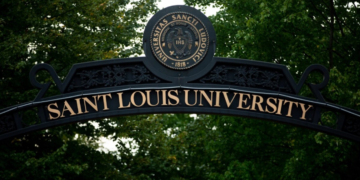In this June 2020 photo, hundreds gather at the Pennsauken Community Rec Center in Pennsauken, N.J., for a march and vigil honoring George Floyd and other victims of police violence. (Emma Lee/WHYY)
May 01, 2024 Story by: Editor
In just over a month, on Juneteenth, New Jersey is set to release a preliminary report providing one of the nation’s most comprehensive analyses on reparations. This study aims to address economic, legal, and political inequalities stemming from slavery, Jim Crow laws, and other historical injustices.
New Jersey’s initiative seeks to serve as a blueprint for rectifying injustices that span four centuries. The detailed findings and proposals will be unveiled on June 19.
PIX11 News has obtained an early preview of the report and delved into the issues and historical context behind the forthcoming recommendations.
The concept of reparations remains contentious among many New Jersey residents, including those of African descent. Kevin Pritchett, a Newark resident, expressed skepticism, stating, “Oh, I think it’s an impossible thing to do, because you’re talking about slavery, and how many hundreds of years ago was that?”
Conversely, Sharon Beamon from West Orange, who is also Black, views reparations as “actually receiving what we should have from years ago.” She believes that reparations in New Jersey are “very likely.”
These contrasting perspectives highlight the diverse opinions on the issue of reparations.
Reparations, by definition, involve making amends for a wrong or injury. Jean-Pierre Brutus, who leads New Jersey’s reparations initiative, describes it as addressing “big harm” with “big repair.”
National support for reparations is mixed. A recent YouGov poll revealed that 58% of respondents opposed government cash payments to Black Americans, 24% supported it, and 19% were uncertain.
Brutus, senior counsel in the Economic Justice Program at the New Jersey Institute for Social Justice, believes that increased education about historical injustices could shift public opinion. “They don’t realize the direct connection they may have to slavery,” he noted.
The New Jersey Reparations Task Force aims to educate the public about the lasting impacts of slavery and systemic racism. Brutus emphasized that New Jersey’s unique history of discrimination positions it to lead by example in remedying past wrongs. “We hope that other states, particularly those with significant histories of slavery, can look to New Jersey and say, ‘Hey, we can do that,’” he said.
New Jersey’s documented history of enslavement dates back to the 1620s. Perth Amboy, a major slave port during the colonial period, was a central location where thousands of Africans were brought and sold.
Leslie Wilson, a professor of American and African American Studies at Montclair State University, highlighted that New Jersey’s mid-1800s conditions were akin to those typically associated with the American South.

















